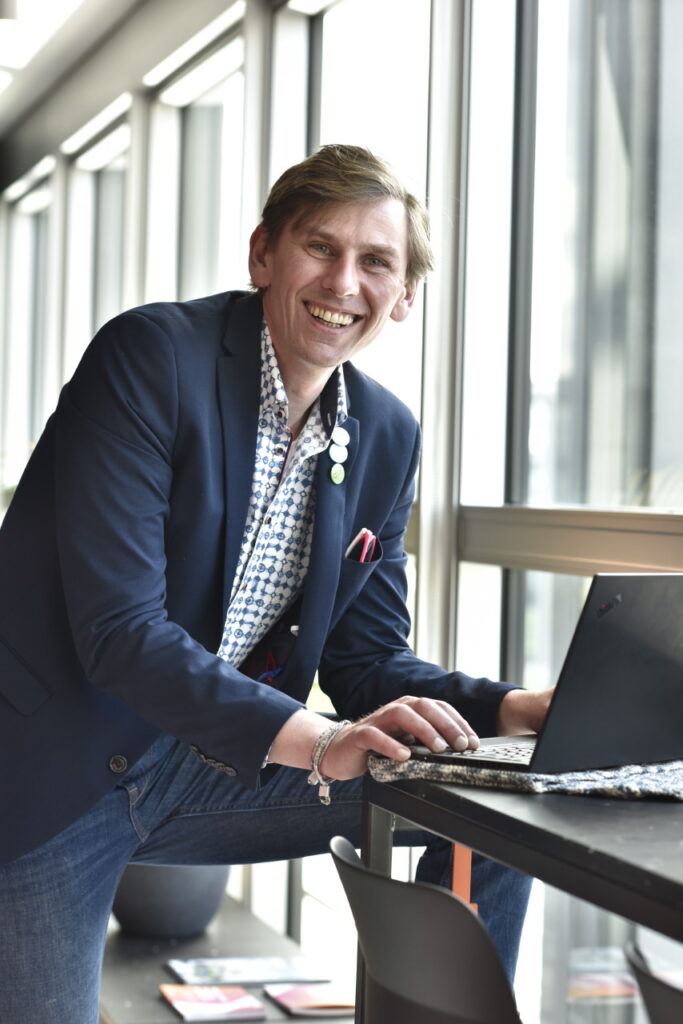
Dipl.-Inform. Christoph Henseler
The Managing Director of difgl is a computer scientist and historian with many years of experience in public funding. At TU Berlin, he conducts research at the intersection of society, technology, and innovation, particularly in the fields of labor studies, smart cities, mobility, and cybersecurity.
Since 2012, he has coordinated numerous research and innovation projects with the aim of bringing finished products directly from academia to the market—each involving relevant national and European funding measures as well as corporate participation from the private sector. These included projects on digital citizen participation such as FlashPoll, PIAZZA, and CivicBudget, as well as from the mobility sector, e.g., RAMSES and DoNotFear.
In recent years, he designed and facilitated stakeholder processes for the Federal Office for Information Security on the topic of Internet and civil rights and was, among other things, significantly involved in the development of a participatory agenda for Urban Mobility for the Federal Ministry of Education and Research.
Christoph advises authorities and institutions, as well as universities, federal agencies, and ministries at various regional, national, and international levels, both domestically and abroad. Currently, as part of the European B-Prepared project, he is working on integrating vulnerable groups into European disaster preparedness through new computer games and heads the Mittelstand-Digital Zentrum Berlin at the Technical University of Berlin.
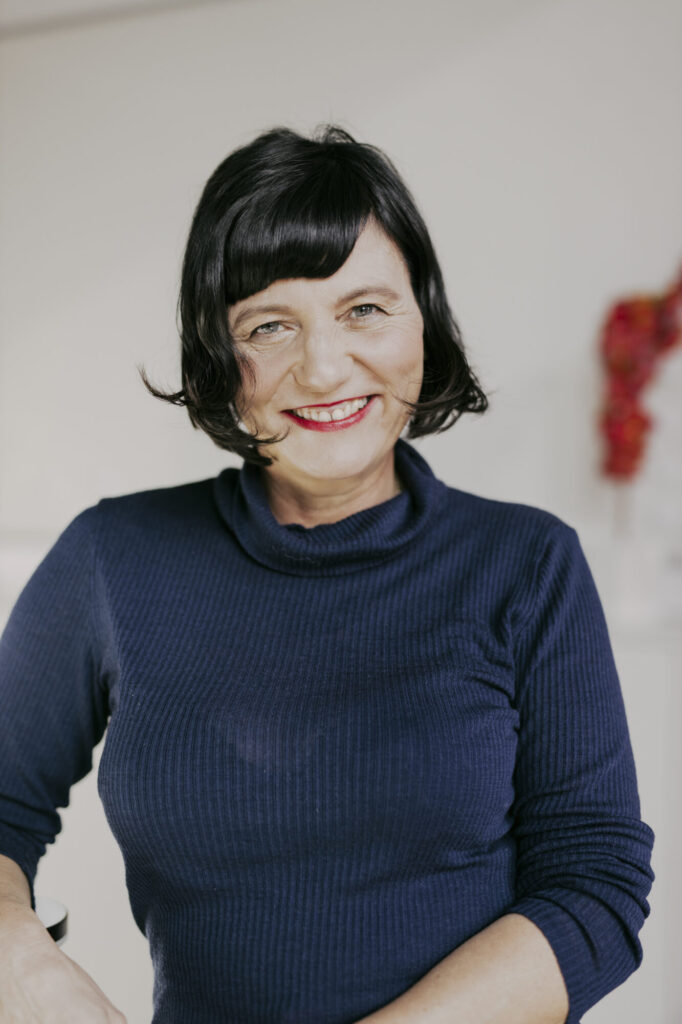
Katja Anclam, M.A.
Managing Director of difgl is a TV producer and media scholar with many years of experience both domestically and internationally. Katja sees herself as a shaper of the future and, as difgl’s Managing Director, is responsible for science communication.
Furthermore, she is responsible for setting thematic priorities and advising companies and start-ups in the area of “shaping the future”. She also focuses on connecting companies with future-oriented topics and developing new business areas, leveraging her many years of experience with Asian markets.
Thanks to her intercultural expertise, gained through her work in many different countries, the humanities scholar is aware of the many positive effects of employing greater diversity to overcome current challenges and solve problems.
As co-founder of female.vision e.V., a non-profit association based in Berlin, Katja advocates for a world where people live and work together peacefully and equally, regardless of gender, age, origin, sexual orientation, or skin color.
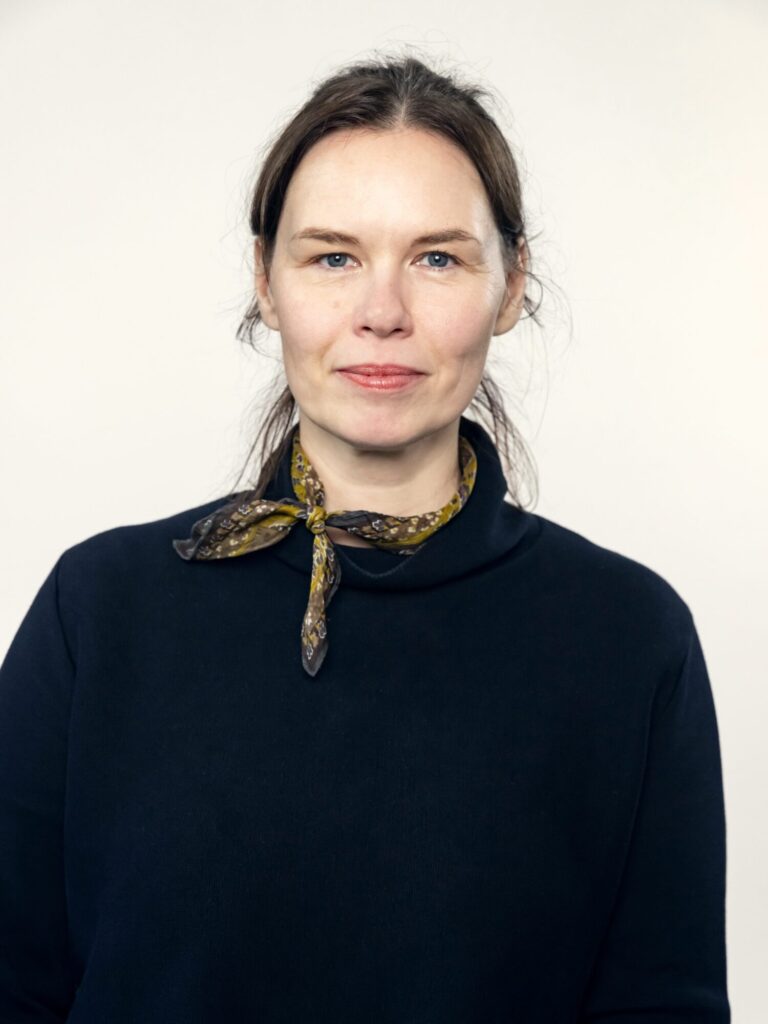
Sina Heider
In the television sector, Sina Heider has supervised and organized productions of all kinds. From short magazine features to large live shows, from public broadcasting to private.
Structured organization, efficient team leadership, and continuous motivation for herself and her teams—these keywords are integral to her understanding of good project organization.
Born in Berlin, raised near Augsburg, and professionally back in Berlin via Hamburg: Sina Heider has been in television since 2004. What started as “I’ll do something with media” quickly turned into a great deal of passion and responsibility.
As an excellent communicator, she has built an extensive network of creatives, media companies, agencies, and artists.
Her work includes: Renowned, established, and also new projects: From the “Berlinale” to “Die Giovanni-Zarrella-Show” as a major live event on ZDF, the “Goldene Kamera” as the largest film and television award of its time in Germany, “Menschen auf der Flucht” (People on the Run) – a fundraising gala realized for ZDF within two weeks in 2015 during the large influx of refugees to Germany.
Sina Heider has organizationally co-supervised well over 50 productions, broadcast on channels such as ARD, ZDF, RTL, Sat.1, 3Sat, ntv, or ZDFneo. She has worked for various production companies for 20 years, most recently for almost ten years as a production manager and responsible for the deployment of teams of up to 300 people. For her, “something with media” always means the big picture.
She now contributes her expertise in organizing, structuring, communicating, and her hands-on mentality to the mission of DIFGL, helping to steer our projects in the right direction.
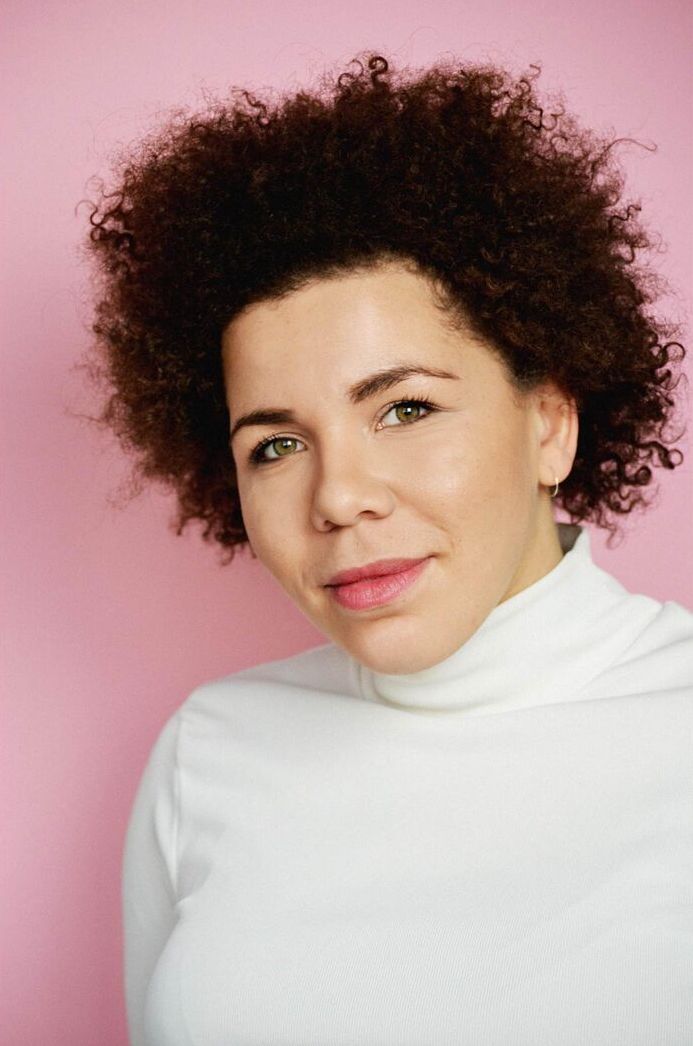
Fabienne Sand
Fabienne Sand is a communication scientist from Berlin. After positions in journalism and as an author for Funk, Ze.tt, BPB, MDR, SWR, and many others, she now supports difgl as an editor.
Her focus areas include intercultural communication, all types of research, as well as pop culture and contemporary online cultures. After training as a marketing communication specialist in the PR segment, the Lübeck native studied Society and Business Communication at the Berlin University of the Arts. After several years of working on freelance projects, difgl is now her professional home.
Here, in addition to leading editorial work in social media, she undertakes content-related project tasks and is the contact person for SPLEE.
Copyright by Johanna Warda
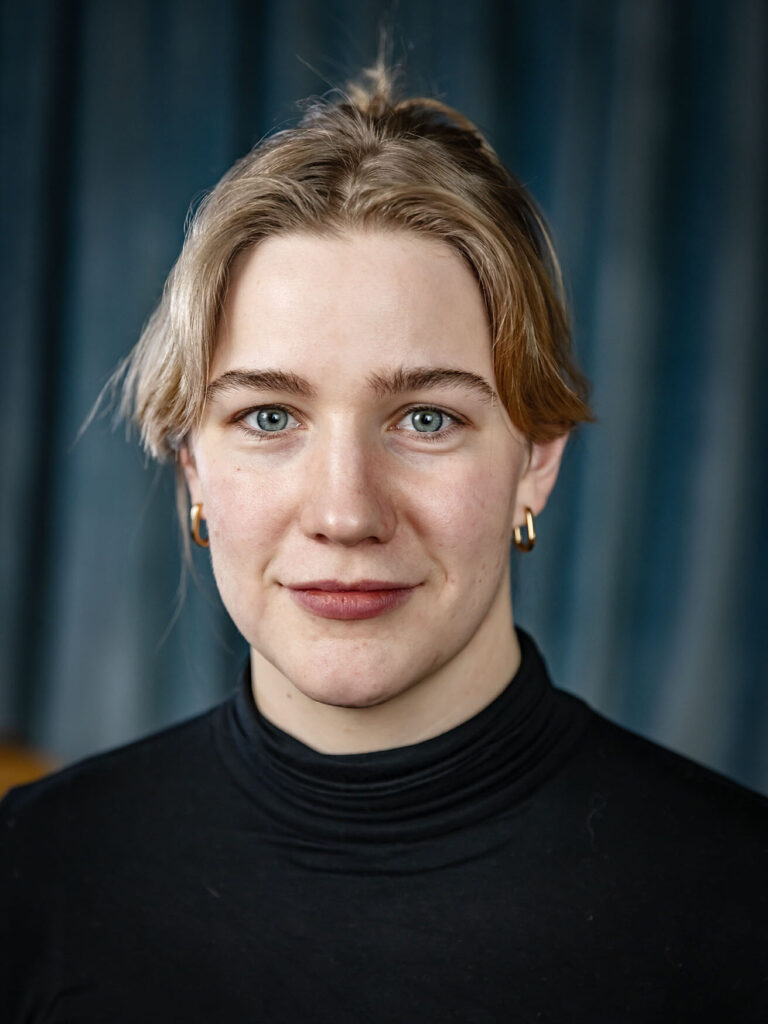
Greta Lauk
As a Master’s student at the University of Fine Arts (HfbK) Hamburg in the Experimental Design Studio, she works as a designer collective with a public welfare-oriented and participatory approach.
Each design project involves scientific research, user surveys, concept development, the creation of funding applications and presentations, and the final implementation of the projects.
She completed her Bachelor’s degree in Industrial Design at Muthesius University of Fine Arts and Design. Here too, research, project development, and presentation went hand in hand.
As a working student, Greta supports us with project coordination and her graphic design skills.
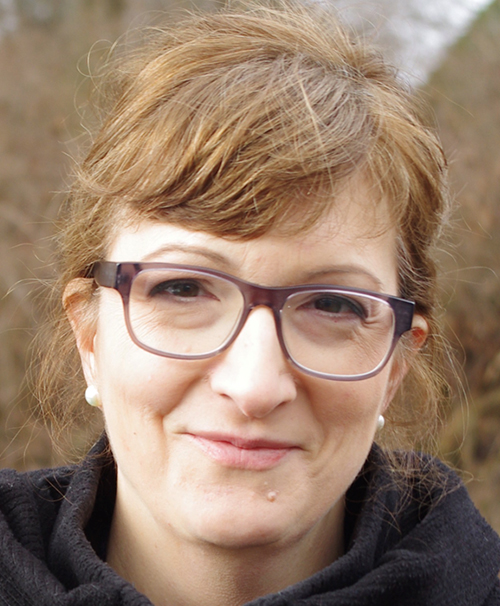
Dr. Kerstin Lücker
Dr. Kerstin Lücker is an author, editor, and translator with an impressive academic career and diverse creative projects.
She dedicated her doctoral thesis to music theory, the emergence of perceptual psychology, and the history of science in the 19th century, particularly in the context of thinkers such as Franz Brentano and Edmund Husserl. She also connected with Husserl’s philosophical concepts in her teaching at the Weißensee Academy of Art Berlin, where she co-designed the Spatial Strategies degree program and developed and taught seminars on artistic creative strategies.
As an author, she has particularly distinguished herself in the fields of history, world history, and women’s history. Her work “Weltgeschichte für junge Leserinnen” (Zurich 2017) gained international attention and was published in 2019 in English translation as “History of the World with the Women put back in” in London. Additionally, she published essays on platforms such as faustkultur.de, as well as literary studies in which she illuminates topics such as politics, society, and the history of Central Europe – particularly the Czech Republic and Poland.
Her expertise and versatility are also evident in her work as a ghostwriter and coordinator of research projects on current topics such as environment and climate, migration, and social participation. Since January 2024, she has headed the research area “Labor Studies/Technology and Participation” at the Department of Labor Studies/Technology and Participation of the Institute for Vocational Education and Labor Studies at TU Berlin.
In addition to her scientific and literary activities, Dr. Kerstin Lücker is also active in the world of contemporary music and performance art. She participated in various radio recordings and concerts as an interpreter and is part of performance artist Maren Strack’s team as a sound director and choreographer. Her creative work uniquely combines her scientific insights with artistic expression, demonstrating her exceptional versatility and passion for cultural and social issues.
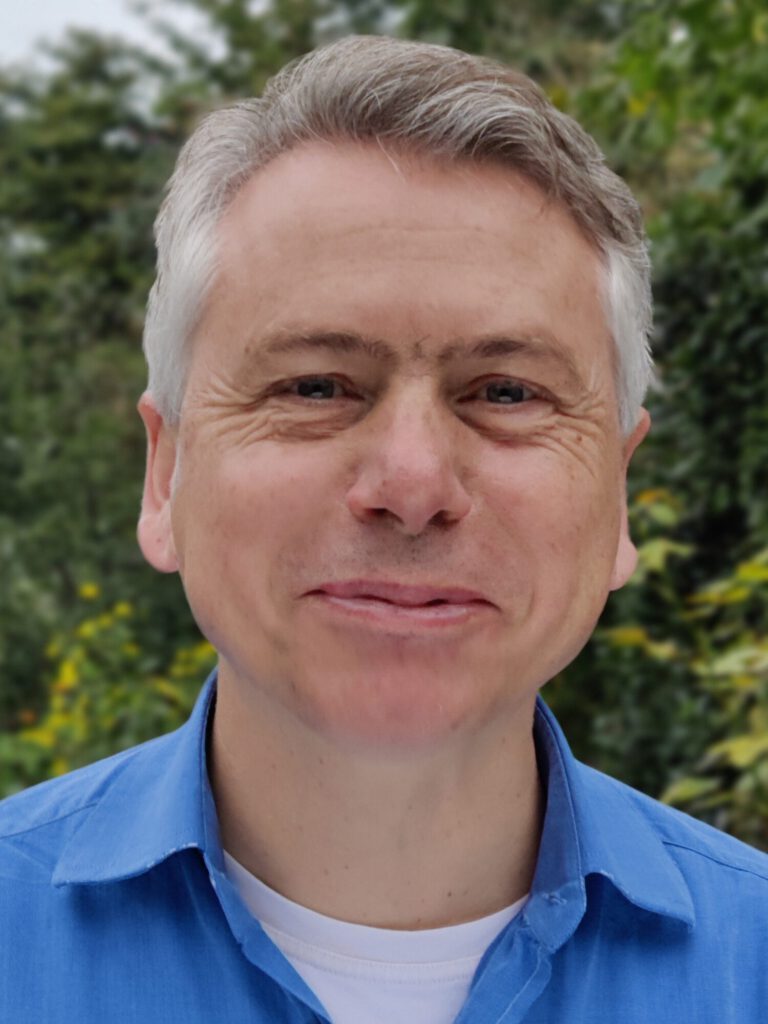
Dr. Robert Keeling
Dr. Keeling has over 20 years of experience working for the British government in national and international politics, ranging from civil society empowerment to human rights and international development.
Outside of his work, Dr. Keeling is a freelance researcher currently engaged, among other things, with the Somali diaspora in the UK (in collaboration with the University of Sheffield as part of the “TRUCIT” (Transcontinental Urban Citizenship) project). He also researches the balance between spiritual faith and intellectual thought in secular societies (the upcoming “HuBb” project).
Dr. Keeling is a community activist with over 10 years of experience in London and Germany, where he has volunteered with various grassroots organizations supporting refugees and asylum seekers (Care4Calais).
Dr. Keeling wrote his doctoral thesis in Physics at the University of Oxford, in which he searched for evidence of “Dark Matter” that originated in the earliest stages of the universe. Dr. Keeling lives in London.
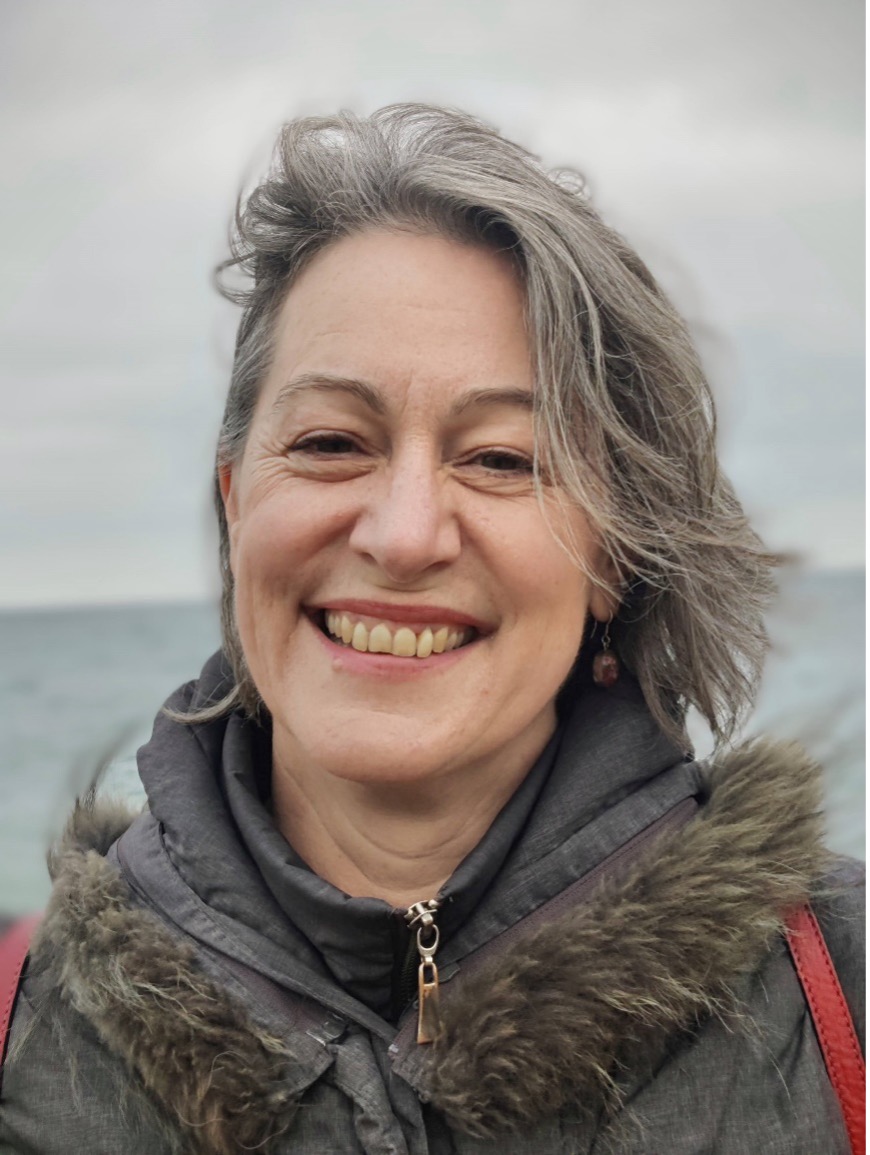
Sabine Pusch
Sabine is an experienced and award-winning director of documentary films. In recent years, she has started producing podcasts. With a degree in archaeology from UCL, she has primarily focused on historical documentaries, but has also reported on topics such as architecture, technology, science, and the environment.
Born in Germany and raised bilingually, Sabine has spent her entire life in the United Kingdom.
She began her career at ITV with anthropological pioneer Brian Moser, worked for several years in the BBC’s science department, and won a BAFTA for the Channel 4 series “Operatunity” as a production manager. She recently started podcasting.
In the mid-90s, she opened the shop “Off the Beaten Track,” focusing on fair trade products from Bangladesh. She is a passionate environmentalist and continues to seek ways to keep the climate crisis at the top of the political and media agenda.

Denise Braun
With over twelve years of experience as a commercial employee and a degree in tourism economics, Denise combines sound expertise with a strong hands-on mentality.
Her strengths lie in office organization, where she maintains an overview with calmness and prudence and works efficiently.
As an assistant, she supports the team with her organizational talent and ensures that operations at difgl run smoothly.
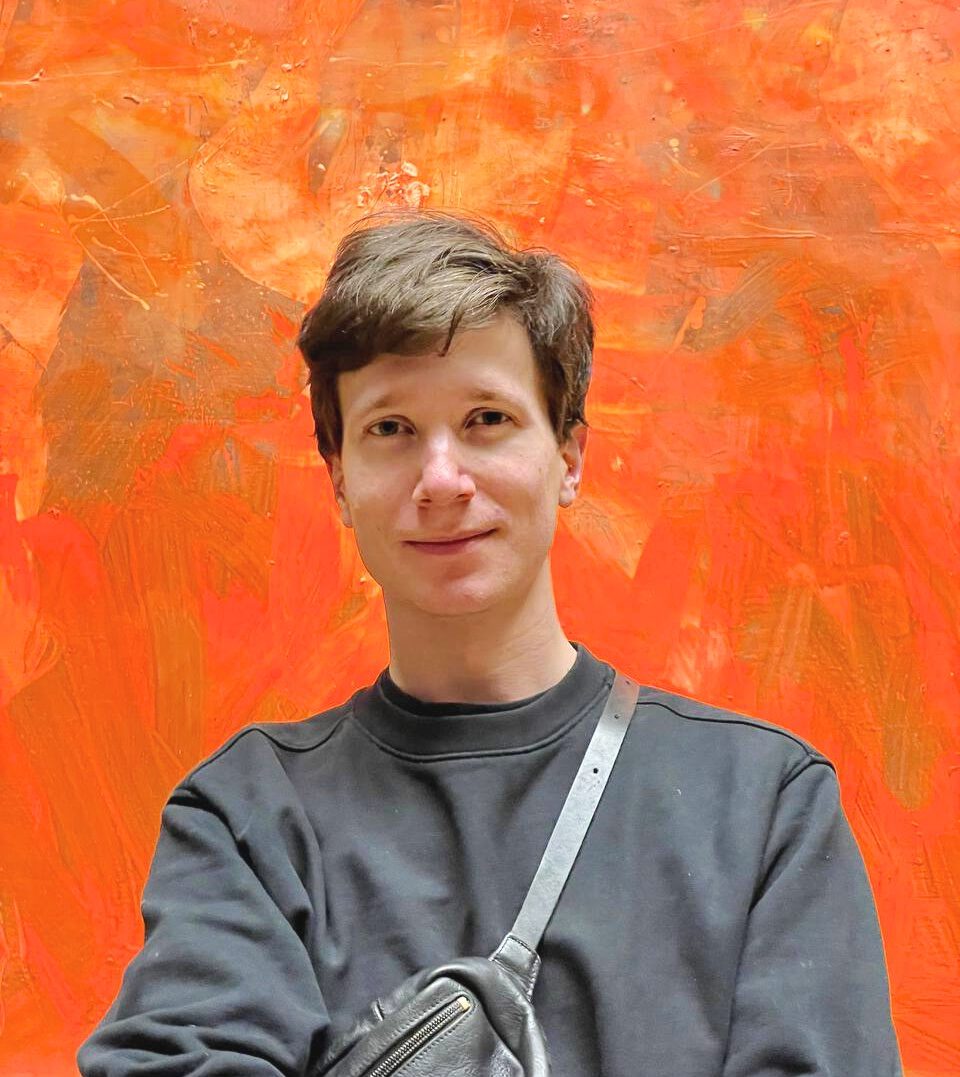
Alexander Polivanov
Alexander Polivanov is a curator of contemporary art, musicologist, and cultural manager. Since 2022, he has lived in exile, which shapes not only his life but also his creative and scientific work.
With an interdisciplinary approach, he connects visual arts, music, and media projects, thereby creating innovative and multifaceted works.
In 2024, as a DAAD scholarship holder, he conducted research at Humboldt University Berlin on musical emigration and the influences of political frameworks on culture. As founder and editor-in-chief of the media project “Music in Emigration,” he illuminates cultural emigration and artistic processes in a global context, opening new perspectives on cultural identity and change.
His path to becoming a curator, cultural project manager, and researcher began with a cultural management program at the Moscow School of Social and Economic Sciences (MSSES). Originally trained at the Russian Gnessin Academy of Music in Moscow, he gained valuable artistic experience as a bassoonist in symphony orchestras and opera houses. His versatile career reflects his passion for music and culture, as well as his ability to connect artistic disciplines and create new forms of expression.
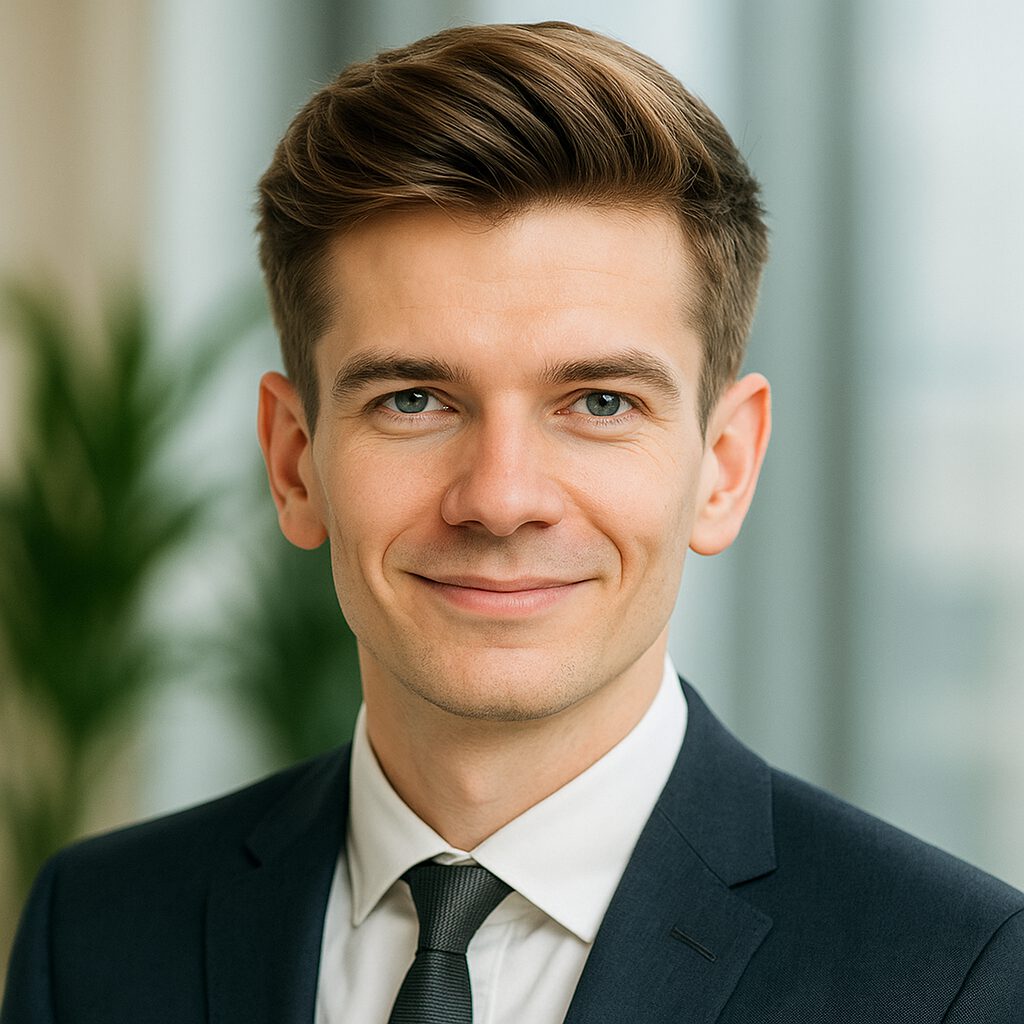
Andrey Shebentovsky, M.Sc.
Andrey Shebentovsky is an AI expert and full-stack software architect with over 15 years of experience in software development and team leadership. He studied Physics and Computer Science and earned a Master’s degree in Information Systems and Technologies in Physical Research.
His focus areas include the development of cloud-based solutions, video and audio communication, mobile and web applications, as well as Large Language Models, Computer Vision, Deep Learning, Machine Learning, statistical analysis, and digital signal processing.
Andrey advises companies across various industries – from banks to manufacturers, construction companies, and hotels – on digital transformation. His projects have received international awards and have been presented by ministers and top executives.
He has worked in various countries and led international teams. In doing so, he has developed GIS and CAD systems, including cloud-based engineering tools and automated design solutions for complex industrial environments. Furthermore, he supports companies in implementing AI-based chatbots and solutions based on Large Language Models (LLMs) to optimize customer interaction, internal processes, and digital services.
Andrey holds a patent for a distributed time management system and is currently developing a theory of information logistics, which aims to translate complex digitalization processes into clear, measurable steps, thereby specifically increasing the performance of organizations. In his current research, he particularly focuses on the impact of Large Language Models (LLMs) on digital transformation.
Andrey combines deep technical expertise with a clear focus on practical solutions and measurable results.
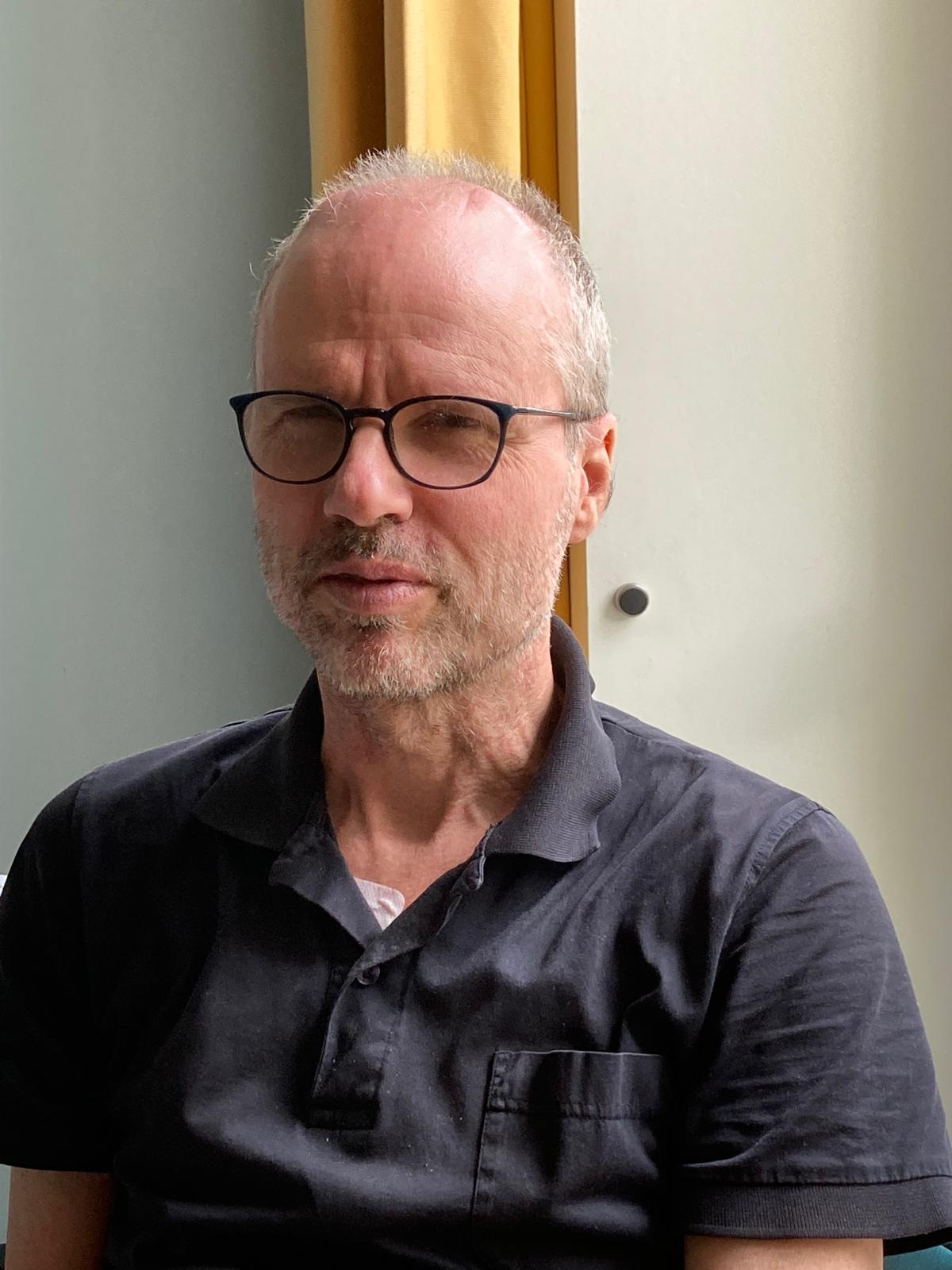
Dr. Frank Geraets
Mathematician and Mobility Expert, Heisenberg Fellow of the German Research Foundation, long-standing corporate strategist at Deutsche Bahn AG in Berlin, with a focus on modeling, simulation, and optimization of infrastructure (StationsOffensive).
Further topics include timetables and circulation plans; group-wide innovation management (Funkenwerk); burnout prevention; future research, EU research projects AMORE (Algorithms for the Optimization of Railways in Europe), ATMOS (Algorithmic Methods and Models for Optimization of Railways); voluntary engagement with Bündnis 90 Die Grünen (Alliance 90/The Greens).
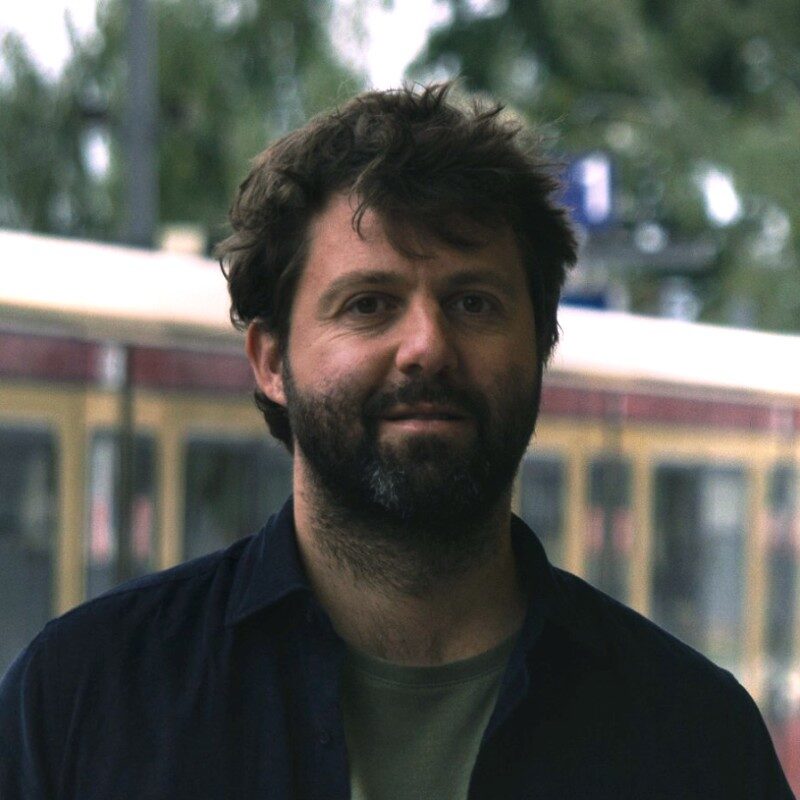
Martin Schlecht
Martin Schlecht is a research associate, lecturer, and consultant. Professionally, he is active in the fields of urban development and mobility, pedagogy, and mycology.
He focuses on practical methods to make our cities greener, more vibrant, and more climate-friendly. He tests these formats practically on-site and also in teaching. Using these methods, he works on transdisciplinary approaches to the necessary changes of our time, the mobility and energy transition in cities, and the transformation towards a low-emission and local food system transition.
Martin Schlecht comes from the Black Forest and developed an early interest in the interrelationships between cities and rural areas. After his civilian service in the USA, he studied Geography and Communication Sciences at the University of Vienna and Istanbul University (2004-2009). In his Master’s programs in Urban Ecology (TU Berlin) and Political Communication (FU Berlin), he focused on urban waste management, urban agriculture, the contamination of urban soils and food by heavy metals, and political participation for the re-municipalization of energy supply. His current activities include projects on urban greening and mobility transition in international cooperation, and in teaching and research at TU Berlin and the nexus Institute. Previously, he worked for the Federal Foreign Office for international cooperation. In addition to his work, Martin is involved as a nature educator and offers mushroom consultations (toxicology), ski tours, and wilderness education courses.
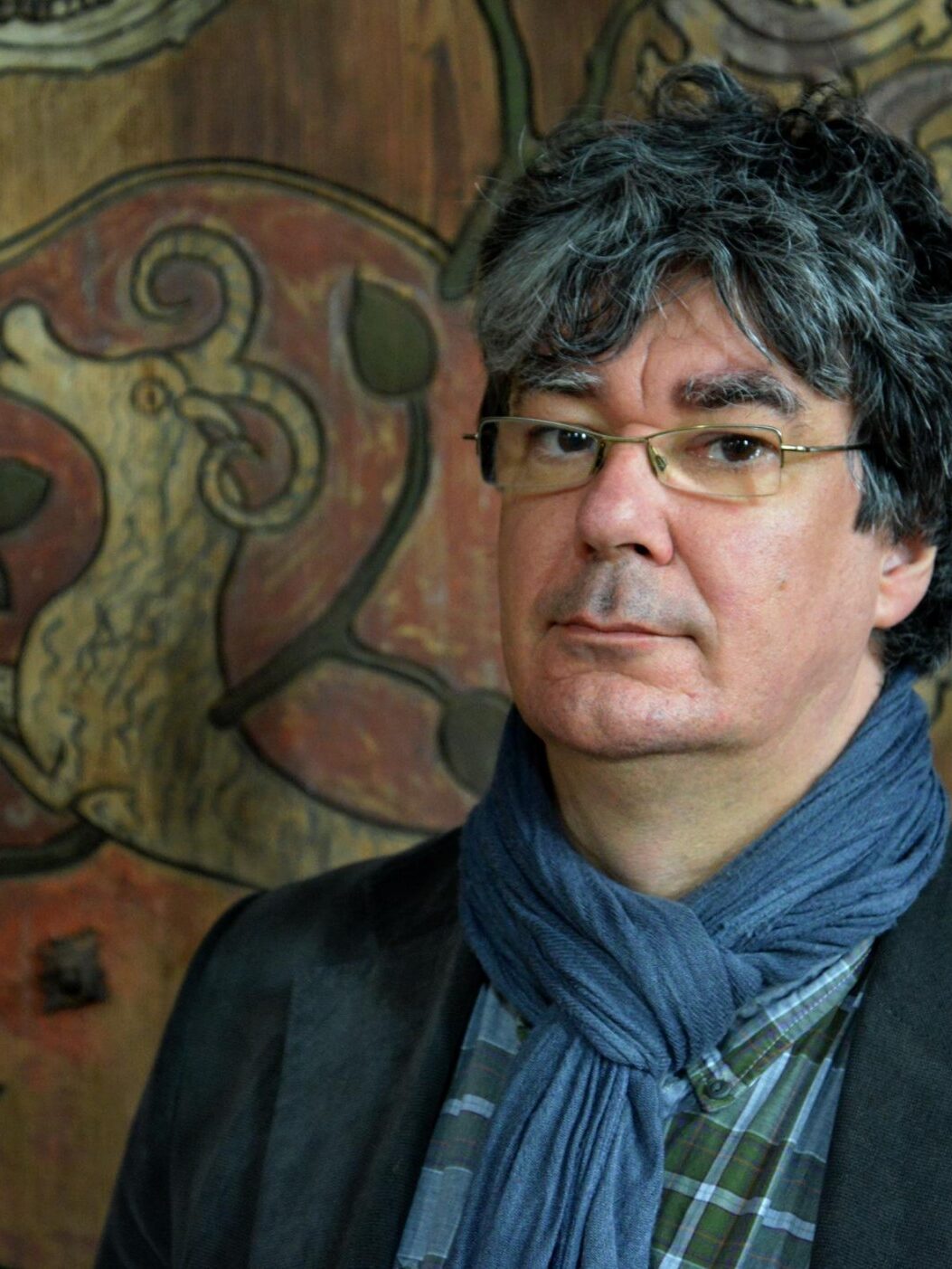
Dr. Hartmut Kühne
Dr. Hartmut Kühne studied Protestant Theology at the Kirchliche Hochschule Berlin (East) and the Faculty of Theology at Humboldt University Berlin. From 1993 to 2008, he worked as a research associate at Humboldt University Berlin.
He held teaching positions at the Technical University of Berlin (Medieval History) and the Faculty of Theology in Göttingen and has been a lecturer for Church History at the Pedagogical-Theological Institute (PTI) Brandenburg since 2008. Since 2009, he has worked freelance on various exhibition and research projects.
His work focuses on the history of the church and piety in the late Middle Ages and early modern period, particularly pilgrimage research and the history of piety in early modern Lutheranism. In 2010, he was co-opted into the Scientific Advisory Board of the German St. James Society, of which he has been Deputy Chairman since 2017.
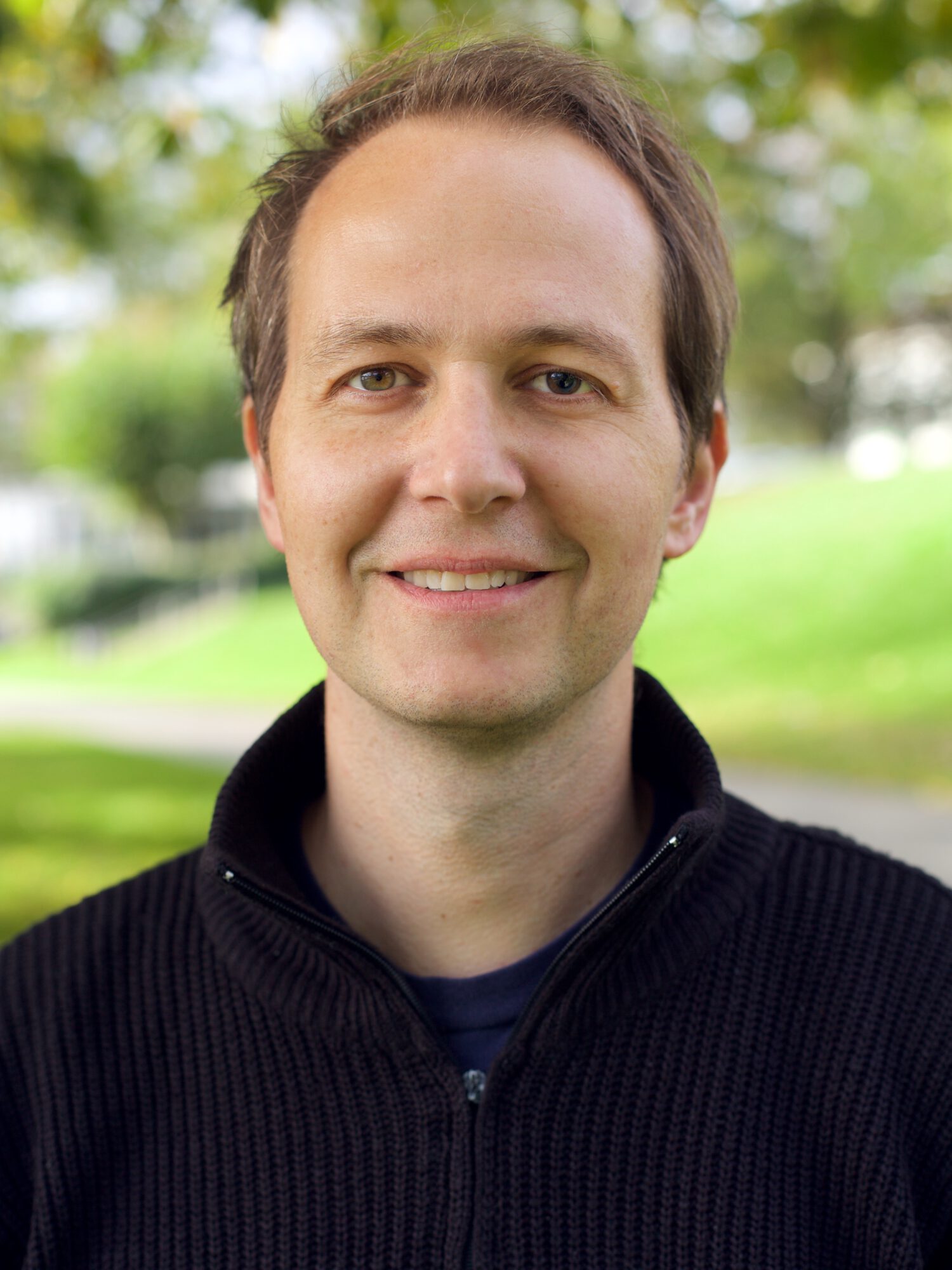
Matthias Frischer
Matthias Frischer is an education officer, systemic coach, and trainer for intercultural communication.
Born and raised in Würzburg, he studied International Studies of Global Management in Bremen.
After stays abroad in Spain and Chile, he entered adult education in 2007, focusing on intercultural communication, and three years later began supporting young adults in their career orientation. He has since guided over a thousand young adults in their career orientation through workshops and individual coaching sessions.
In 2019, he founded the organization ’60plus engagiert’ to support people transitioning into retirement. Since then, he has advocated for greater awareness of this topic, advises companies on it, and thus contributes to a fulfilling, healthy, self-efficacious, and meaningful life in the third phase of life.
His work is shaped by Otto Scharmer’s Theory U and his over ten years of meditation and mindfulness practice. He holds a degree as a NARM Practitioner.
In addition to his work, he particularly enjoys his family life.
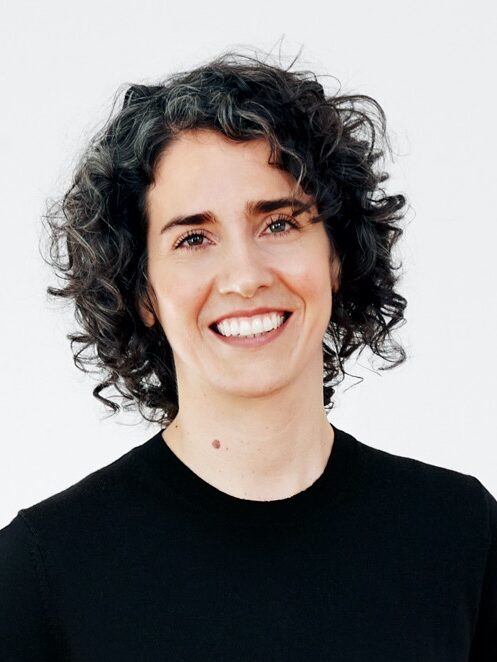
Emily Poel
Emily Poel has been teaching Embodiment Training in Berlin for over fifteen years. Originally from Michigan and holding a degree in contemporary dance performance and history, she has worked in Berlin and internationally as a performer, choreographer, and creative consultant.
In 2004, she shifted her focus to bodywork and Embodiment Training and has not stopped since.
The necessity for new and continuous exploration of embodiment principles in daily life is becoming more important than ever. Over the past ten years, Emily Poel has developed a variety of workshops and courses that focus on body awareness tools and movement training to enhance creativity, learning, and thought processes. She regularly collaborates with companies and organizations, as well as in the field of New Work, and with academics and institutions to integrate body awareness into various professional environments.